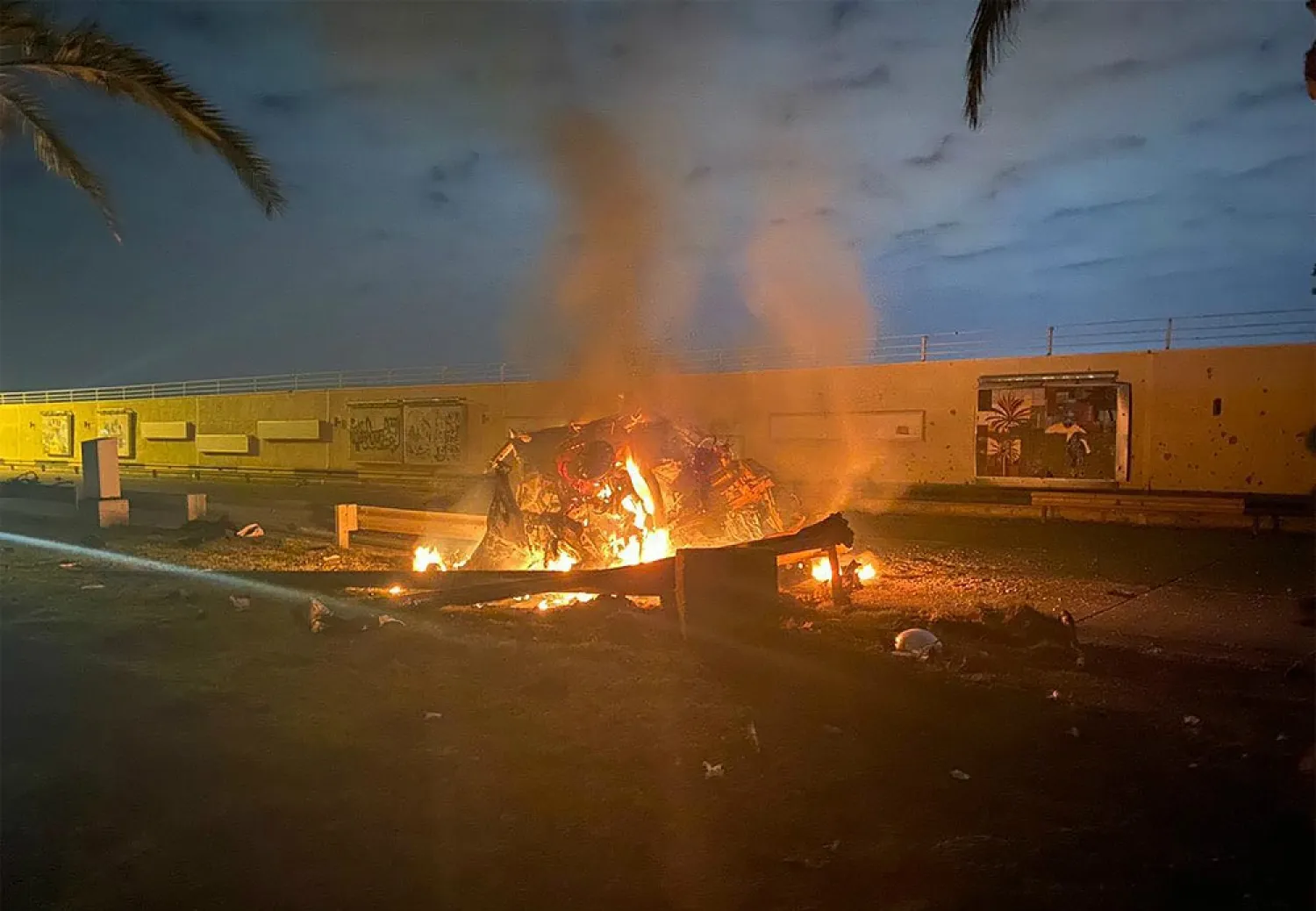Former Iraqi Prime Minister Haider a-Abadi’s revelations about the assassination of Iranian’s Quds Force commander Qassem Soleimani have created uproar in Iraq.
Abadi revealed that the aircraft that targeted Soleimani and deputy head of the Popular Mobilization Forces, Abu Mahdi al-Muhandis, near Baghdad airport in January 2020, had received approval to fly over Iraq.
A document was released to confirm his statements.
The document was signed by Iraqi air defense commander Jabbar Obeid Kazem on January 3, 2020, hours after the attack took place. It confirmed that “three drones had entered Baghdad airspace hours before the operation and flew towards the airport after midday on January 3.”
“They left the airspace after the operation,” it read.
Former Prime Minister Adel Abul Mahdi released a long statement denying Abadi’s claims that he had approved the drones’ entry into Iraqi airspace.
The al-Fatah coalition, led by Hadi al-Ameri, called on the judicial and security authorities to launch a probe into Abadi’s remarks.
Coalition member Moeen al-Kadhimi said that the approval was for the American drones to enter the airspace, not carry out the assassination.
He accused the United States of violating Iraqi sovereignty and international law, adding that the Defense Ministry and joint operations command are the sides that granted the aircraft approval to fly over Iraq.
Abdul Mahdi had granted these two sides the authority to make such decisions, continued Kadhimi.
“It is not unlikely that Iraqi parties were involved in the operation, acting as American agents in the assassination of Soleimani and al-Muhandis,” he speculated.
The judiciary must summon Abadi for clarifications about his remarks, he urged.









